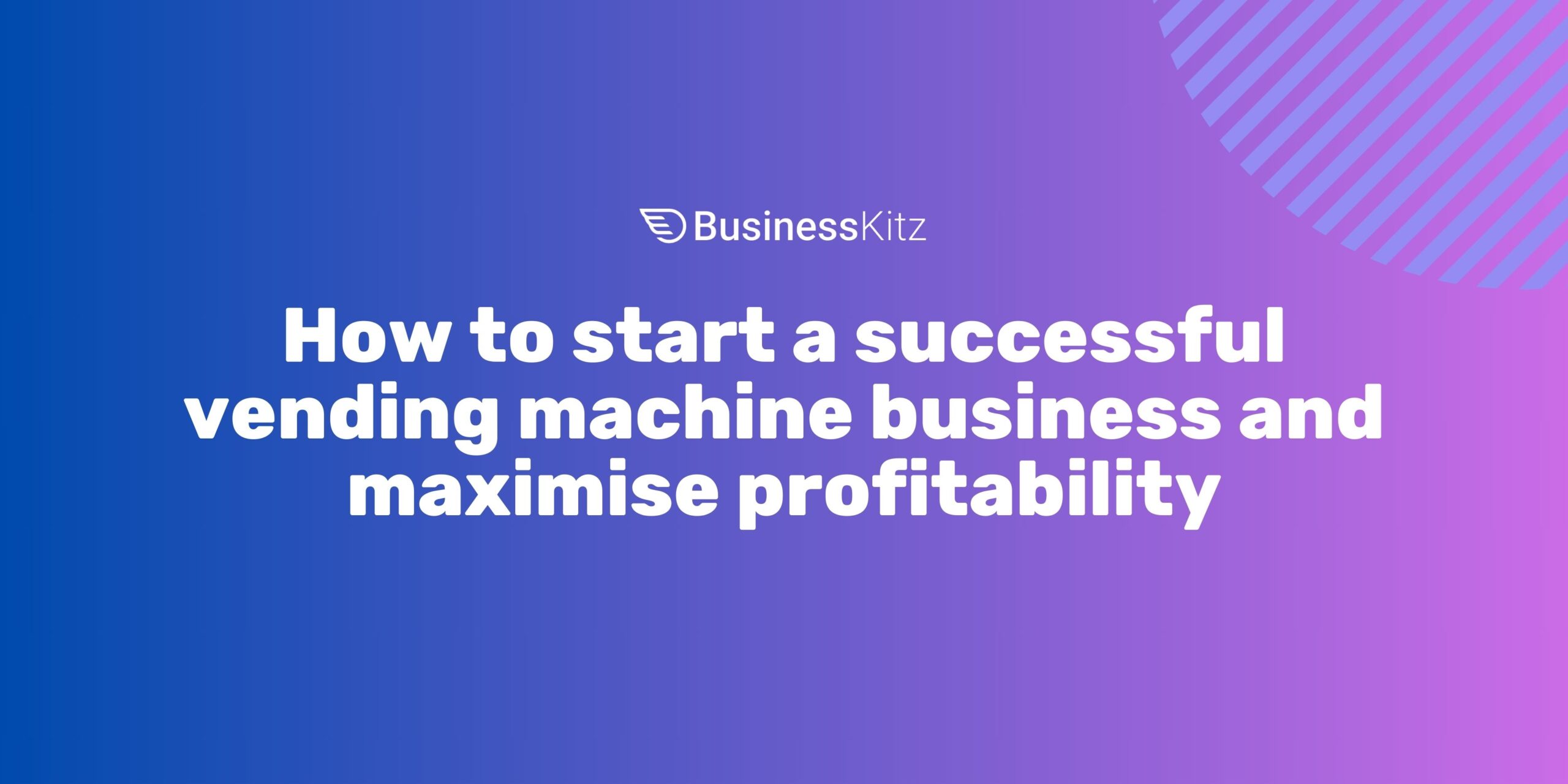
We've helped businesses save $55m with our all-in-one platform. Get instant access to this template and 115+ others, plus AI-powered document creation, starting completely free.
Starting a vending machine business offers a low-risk way to generate passive income. This business model requires minimal investment and can be run with little maintenance. Whether you're looking for a side hustle or aiming to scale quickly, the vending machine business provides flexibility and opportunity. With strategic planning, smart product choices, and careful location selection, you can build a profitable venture with minimal ongoing effort.
The vending machine business is growing rapidly, offering a low-maintenance and scalable business model. Entrepreneurs are increasingly drawn to this industry for its potential to generate passive income with minimal overhead. From side hustlers looking for extra income to corporate investors seeking scalable opportunities, the vending industry caters to a wide range of business owners.The appeal lies in its simplicity. Vending machines operate 24/7 without the need for staff, making them a flexible solution for various business models. Whether you're managing one vending machine or expanding with many vending machines, this type of business offers a straightforward way to earn income based on location, product selection, and machine efficiency.Different types of vending machine businesses include full-service vending, where a vending machine operator handles maintenance and restocking, and traditional vending, where the owner manages every aspect. There’s also specialty vending machines that sell niche products like healthy snacks or tech gadgets.This article will guide you through key aspects of starting and managing a vending machine business. We’ll cover types of vending models, profitability factors, and steps to start a successful vending machine business. Additionally, we’ll address challenges like theft, maintenance, and market research to help business owners navigate the vending industry successfully.Whether you’re looking to start your own vending machine business or grow an existing one, understanding the essentials will help you make informed decisions and set yourself up for long-term success.
[ez-toc]

A vending machine business offers a simple, scalable way to generate passive income. With low overhead costs and minimal maintenance, it’s ideal for entrepreneurs seeking flexibility. The key to success is choosing high-traffic locations, offering popular products, and regularly maintaining your machines. This business model allows you to expand easily while earning income with minimal effort.
Choosing the right vending machine business model depends on your goals, time commitment, and budget. There are three main types: full-service, traditional, and specialty vending. Each offers different levels of involvement, investment, and profit potential.
Full-service vending is ideal for hands-off entrepreneurs. A vending machine operator manages the restocking, maintenance, and customer service. This model requires low to medium investment but shares profits with the operator. It’s a great option if you prefer minimal involvement and a steady income stream.
Traditional vending offers full control over inventory, machine placement, and profits. You’ll handle product sourcing, machine maintenance, and site agreements. While this model requires more time and effort, the potential returns are higher. Running a vending machine business this way involves medium investment and high maintenance. It suits those who want direct control over operations and are willing to work for higher profits.
Specialty vending focuses on niche products like healthy snacks, tech gadgets, or unique offerings. These machines cater to specific market demands, making them stand out in crowded locations. Though medium to high investment is needed, the profit potential is strong due to less competition. Specialty vending appeals to business owners targeting unique markets.TypeInvestmentMaintenanceProfit potentialFull-serviceLow to mediumLowShared profitsTraditionalMediumHighHighSpecialtyMedium to HighMediumHigh (Niche)Selecting the right model will depend on your resources and business goals. Evaluate each option carefully to ensure a profitable and sustainable venture.

How to start a successful vending machine businessStarting a successful vending machine business involves careful planning, strategic choices, and smart investments. Here's a simple guide to help you get started.
Before you buy your first machine, evaluate the local demand. Identify areas with high foot traffic such as shopping centres, hospitals, gyms, and office buildings. Understanding your target market is key. Research competitors in your area to see what products they offer and where they are placed. This will help you identify gaps in the market and decide what products will be most in demand. This government website also provides great resources to support you through starting your own business.
A solid business plan is essential for any successful vending machine business. Outline your startup costs, such as machine purchase, initial stock, and location fees. Don’t forget to include operational expenses like maintenance, restocking, and insurance. Additionally, project your profit margins and set realistic financial goals. A clear plan will help you stay on track and measure your business’s growth.To download your essential premium business documents for free visit our Document Library where you can find your policies and procedures, employee agreement templates and more. You can also seamlessly, digitally sign your documents and store them in your own Document Vault all for free. Get started here for assured compliance, the easy way.
Register your business and ensure that it complies with local health and safety regulations. You may need specific permits depending on your location and the type of products you sell. Make sure to secure the necessary approvals before placing your machines in public spaces.Business Kitz offers a repository of agreement templates and business documents such as all your human resource management needs from recruiting to policies and procedures and induction checklists all right through to termination letters. Do you have any contractors you need to liaise with? Have you got your Independent Contractor Agreement Template in place? You can download one for free here. Did you know that a sizeable time of our days is spent either generating documents or searching for them? Save time and money and sign your documents with Business Kitz and then store them your Document Vault, so you never lose them again.
Choose the right vending machines for your business. If your budget allows, invest in new vending machines with modern features such as cashless payment options and touch screens. These machines attract a wider customer base and can increase sales. For those on a tighter budget, buying used machines can be a cost-effective option.
The right location is crucial for success. Partner with businesses in high-traffic areas such as gyms, hospitals, and office buildings. These locations will maximise vending sales by providing exposure to large groups of people. Also, consider placing your machines where people have a need for quick, easy access to snacks or drinks.By following these steps, you’ll set a strong foundation for your vending machine business and increase your chances of success.

When it comes to vending machine profitability, several key factors can make a significant difference in your success. Understanding and optimising these elements will help maximise earnings.
The location of your vending machines is the most important factor affecting profitability. High-traffic areas such as shopping malls, airports, and train stations generate higher earnings due to the constant flow of potential customers. These spots offer convenience for people on the go, making them more likely to purchase snacks or drinks. Placing your machine in a location where people are in a hurry or have limited options for food and drinks can greatly boost your vending sales.
The products you offer can also make or break your vending machine business. Stocking popular, seasonal, and trending items increases the chances of making sales. Customers are more likely to buy items they recognise or those that meet their immediate needs. For example, offering healthy snacks or fresh beverages in gyms or offices can cater to specific demands. Regularly reviewing the products in your machines and adapting to customer preferences will help increase profits.
Technology plays a crucial role in modernising your machines and enhancing the customer experience. Installing cashless payment options, such as mobile payments or tap-and-go, makes transactions easier and faster. Studies show that vending machines with these features often see an increase in sales of up to 30%. Modern machines with touch screens also attract customers by offering a more engaging user interface.
The smooth operation of your vending machines is essential for customer satisfaction and long-term profitability. Regular maintenance ensures that machines are always stocked and functioning properly. A well-maintained machine reduces downtime and improves customer experience, making people more likely to return for future purchases. Proper maintenance also minimises repair costs and helps maintain a profitable vending machine business.By focusing on these key areas, you can increase the profit per machine and build a successful vending machine business.
Maximising the profit margin per machine in your vending business is crucial for long-term success. Here are several strategies to increase profitability and improve the efficiency of each vending machine you operate.
Tracking stock turnover is essential for optimising your sales and reducing waste. Regularly monitor which products are selling well and which are not. By analysing sales patterns, you can avoid overstocking low-demand items, freeing up space for more popular goods. Keeping track of expiry dates and product freshness also helps avoid unnecessary losses. A good inventory management system ensures your vending machines are always well-stocked with high-demand products, reducing the risk of missed sales opportunities.
Using real-time software to monitor the performance of each machine helps identify profitable patterns. These systems track important metrics such as profit per machine and sales volume. By evaluating these figures, you can adjust your inventory or pricing strategies to increase earnings. Many vending machine operators use cloud-based platforms to access data remotely, allowing them to make timely adjustments without needing to visit the machine.
Offering a range of payment options can increase your machine’s sales. Modern consumers prefer the convenience of cashless payments, such as credit cards, mobile wallets, and tap-and-go. By supporting these methods, you cater to a broader customer base, particularly in locations with a higher proportion of cashless users. Vending machines with advanced payment options often see an increase in sales and a higher profit margin per transaction.
Adapting your product selection based on customer preferences is key to maintaining a profitable vending machine business. Regularly review consumer feedback and trends to offer products that meet their evolving needs. For example, introducing healthier snacks or eco-friendly options can attract a new customer segment. Additionally, offering seasonal or limited-edition items can generate excitement and boost sales. The more you align your products with customer desires, the more likely you are to increase sales and enhance profitability.By focusing on inventory management, performance monitoring, payment options, and customer preferences, you can maximise the profit margin per machine and build a successful vending machine business.
A vending machine business offers several distinct advantages, making it an appealing option for many entrepreneurs. These benefits range from low costs to flexibility, allowing business owners to operate with less effort while still earning a steady income.
One of the biggest benefits of starting a vending machine business is the low overhead costs. Unlike traditional businesses, you don’t need to hire staff, rent a storefront, or manage inventory in the same way. You can even place your vending machines in locations that already have high foot traffic. As a result, you avoid the high operational costs that come with running a brick-and-mortar business. This makes the vending machine industry an attractive option for people with limited capital.
Another major advantage is scalability. Once you have established your first few vending machines, you can easily expand by adding more machines to different locations. You can scale your business quickly by increasing your vending machine portfolio without significantly increasing costs. The more machines you have, the more revenue you generate. As your vending business grows, you can continue expanding into new locations.
The automated nature of vending machines means you can earn passive income with minimal effort. After setting up your machines, you only need to visit them for maintenance and stock replenishment. This makes the business ideal for people looking for a more hands-off income source. Your vending machine business can run with limited intervention, allowing you to focus on other ventures or personal interests.
Finally, a vending machine business offers flexibility. You can choose to run it part-time or full-time, depending on your goals. If you’re looking to generate some side income, you can start small and grow gradually. If you want to dedicate more time, you can scale it up and manage a larger number of machines. The flexibility of this type of business model means you can tailor it to fit your lifestyle.In summary, starting a vending machine business offers low startup costs, scalability, passive income, and operational flexibility. These advantages make it a great choice for aspiring entrepreneurs.
While a vending machine business offers great opportunities, it also comes with its own set of challenges. Understanding these challenges and knowing how to tackle them will help you run a smoother and more profitable operation.
One of the most common challenges in a vending business is machine breakdowns. These problems can lead to lost revenue and frustrated customers. To prevent this, ensure regular maintenance is part of your routine. Checking and servicing your vending machines every few weeks can help avoid major issues. Routine cleaning and mechanical checks will also extend the life of your machines and keep them running efficiently. For more serious malfunctions, having a technician on call is a good idea.
Another challenge is managing stock levels. You don’t want to overstock, which can tie up capital, but you also need to avoid running out of popular items. The solution lies in using digital tracking systems. These systems can help you monitor inventory levels and sales patterns in real-time, allowing you to replenish stock at the right time. By analysing sales data, you can make informed decisions about what products to offer and when.
Vending machines are often targets for theft or vandalism. To reduce this risk, place your machines in well-lit, secure areas with high foot traffic. Installing tamper-proof locks on the machines can also discourage theft. Some owners even use cameras to monitor machine activity, offering extra protection and peace of mind.
The vending industry can be competitive, especially in busy areas. To stand out, focus on offering unique products or healthier options. Many consumers are looking for more nutritious choices, such as organic snacks, fresh food, or plant-based drinks. By catering to this demand, you can attract more customers and increase sales. Moreover, adding convenience features like cashless payment options can make your vending business even more attractive.By understanding these challenges and using practical solutions, you can increase the chances of running a successful vending machine business.
The type of machine you choose will depend on your target market and budget. Vending machines can sell various products such as snacks, drinks, or even bulk vending items. Consider the type of products you want to offer, the locations you want to target, and your investment level. You can also choose between new or used machines, depending on your budget and goals.
The average vending machine can earn between $100 to $300 per month in net profit. This figure can vary based on factors like location, foot traffic, product pricing, and the number of machines you own. High-traffic areas such as office buildings, gyms, or shopping centres tend to generate higher sales.
Yes, you will need to pay rent or some form of commission to place your vending machines in prime locations. The cost will depend on the space's foot traffic and visibility. Typically, you will negotiate a fee with the property owner, whether it's a fixed rent or a percentage of sales.
Finding a supplier or wholesaler involves researching the vending machine market and connecting with local or online suppliers. You’ll need to source products in bulk at discounted prices to maximise your profits. It's crucial to choose reliable suppliers that can offer competitive prices and deliver products regularly to keep your machines stocked.
To increase profitability, focus on high-demand locations and offer products that match customer preferences. Regularly monitor stock levels and adjust your offerings based on customer feedback. You can also implement cashless payment systems to attract more customers and improve convenience, which can boost sales.
Common risks include theft, vandalism, and machine breakdowns. Placing your vending machines in secure, high-traffic areas and installing tamper-proof locks can reduce the risk of theft. Additionally, regular maintenance and insurance can help protect against unexpected costs like repairs.
Yes, having a separate business bank account helps you manage your finances and keeps personal and business expenses apart. It will make it easier to track revenue, pay suppliers, and manage any operational costs related to your vending machine business.
Starting your vending machine business requires writing a comprehensive business plan. This plan should outline your startup costs, profit projections, and a clear strategy for marketing and maintaining your machines. A solid business plan will guide you through the early stages and help secure funding if needed. Be sure to save your documents in your Document Vault with Business Kitz where you can also access other premium documents, AI summarise them, digitally sign and store.
The vending machine business offers a low-risk and scalable way to generate passive income. With minimal upfront costs and minimal labour requirements, it’s a profitable option for many entrepreneurs. However, success depends on making the right decisions along the way. Thorough research, careful location selection, and ongoing optimisation of your machines are all essential.A key to success is choosing high-footfall locations and stocking machines with popular products. Regular performance monitoring can help you keep track of how your business is doing and make adjustments when needed. The more effort you put into researching and managing your business, the greater your chances of long-term profitability.If you're thinking about starting your own vending business, it’s essential to create a business plan. This will help you define your goals, understand startup costs, and project potential profits. Business Kitz can help you streamline the process with easy access to essential business documents. Access resources to support your compliance and help with creating a structured business plan.Ready to start your vending business? Take advantage of Business Kitz' platform to help get you up and running smoothly. Download free agreement templates, easily generate your business documents, digitally sign your agreements and documents quickly, and store everything securely in your personal Document Vault. Sign up for free today!
Copyright © 2025 Business Kitz 14312161